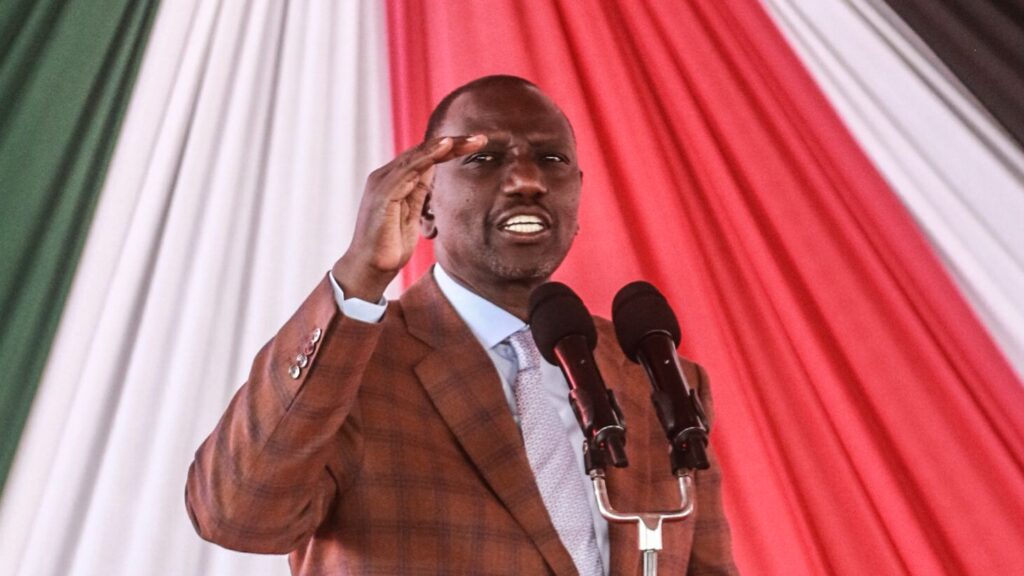President William Ruto has reaffirmed his administration’s commitment to safeguarding the rights of Kenyan musicians by demanding full and direct payment of music royalties. Speaking at the 97th National Music Festival held at the Sagana State Lodge, the Head of State emphasized that his government will ensure artists are no longer shortchanged by intermediaries.
This year’s festival, which brought together performers from across the country from traditional rhythms of northern Kenya to the vibrant taarab of the coast set the stage for the President to address a longstanding issue in the music industry. “From today, we want the musicians to be paid what is due to them. We want to get rid of the middlemen,” President Ruto declared.
His remarks followed a recent court decision that barred the Music Copyright Society of Kenya (MCSK) from collecting royalties on behalf of artists. Instead, payments will now be channeled through the government’s eCitizen platform, a move the President strongly welcomed. “I fully welcome the court decision. We can now have the artists get their money from eCitizen,” he said, assuring musicians that the new system will guarantee transparency and fairness.
Beyond royalty reforms, President Ruto used the occasion to reaffirm his earlier pledge to establish a music and creatives academy. Modeled after the sports academy concept, the institution is expected to nurture raw talent, equip young artists with professional skills, and provide them with a pathway to compete globally, including at prestigious stages like the Grammy Awards.
The President’s push comes amid growing frustration among artists who have long decried exploitation and delayed payments. By rooting out middlemen and introducing digital royalty payments, the government aims to transform Kenya’s creative industry into a thriving sector capable of sustaining livelihoods and boosting the economy.
With the new commitments, Kenyan musicians may soon find themselves better positioned to reap the rewards of their talent and contribute more meaningfully to the country’s cultural and economic landscape

